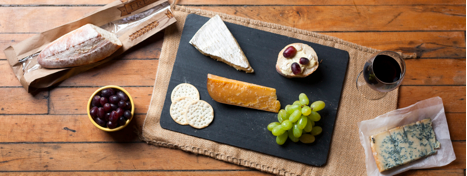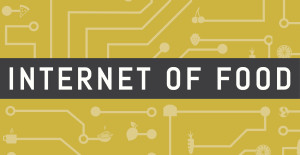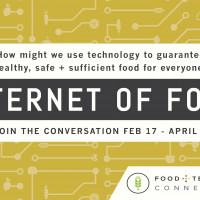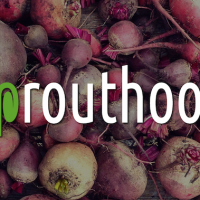
Image: Flickr
Guest post by Scott Shibata, Co-Founder and CEO of Diagenetix, Inc. The views expressed are solely those of the author and do not reflect the views of food tech connect.
The photo above captures a delicious looking meal. And yet, what some foodies may not know is all of those items were produced with the help of microorganisms. Cheese production relies on a combination of both bacteria and yeast. And without yeasts the bread would be flat and the drinks would be sober. The only thing missing from the meal pictured is some nice charcuterie, whose rich flavor comes from the lactic acid producing bacteria.
The first evidence of beer production dates all the way back to the Babylonians in 7000 BC. Since then we have only inched our way to a better understanding of all the microorganisms that impact our food production. However, the microbiota within our food production world is vast. In roughly one tablespoon of soil there are over 10 billion microorganisms and in one drop of a cow’s stomach fluid there are 50 billion.
The optimization of food production is an ever changing balancing act of nutrients, sunlight, pH, salts, temperature, fat, moisture, and many other variables. It is only a natural progression that we seek to optimize the microbial populations as well. We have long known of the symbiotic relationship between roots and bacteria and of the importance microorganisms have in helping ruminant digest grasses. But it is only recently because of new technologies that we are able to understand these types of relationships and how they impact our soil, livestock, and food.
Accelerating our understanding are the advances in DNA sequencing, DNA amplification and bioinformatics. These technologies are creating a deluge of data and the decreasing costs are enabling expansion of their use beyond traditional healthcare related applications. IBM and Mars recently announced a partnership where they are going to be indexing the entire food supply chain by finding gene-markers indicative of anomalies or problems. And on the farm, TerraGenome is utilizing metagenomics to unwind the complex population dynamics within the soils. These organizations are embarking on the food equivalent of the Human Genome Project.
This library of gene-markers and insights will drive optimization of the microbiome from farm to table. However, for the food industry to be able to leverage this library, it will need be able to first identify these gene-markers in their supply chain. This is where technologies like our BioRanger Platform can help.
Today, our BioRanger Platform is being used by food producers to test for harmful diseases that decrease yields and increase liabilities. But in the future, it will be used to test all the other gene-markers impacting our food. Farmers will be able to test for beneficial soil organisms and add the appropriate amendments to bring their soils back into balance for their particular crop. Livestock producers will be able to test their herd and optimize for health and feed conversion. Food processors and manufacturers will be able to identify wild yeasts in their processing houses impacting spoilage and bacteria in their food products impacting flavors. The applications are endless because microorganisms are ubiquitous.
If we are going to feed the world’s ever growing population, we need another green revolution. I propose we start recruiting from the trillions of microorganisms that are already in the field.
 Internet of Food is editorial series exploring how we might use technology, new business models and design to guarantee healthy, safe and sufficient food for everyone? Join the conversation between February 17 and April 2. Share your ideas in the comments, on Twitter using#internetoffood, Facebook or LinkedIn.
Internet of Food is editorial series exploring how we might use technology, new business models and design to guarantee healthy, safe and sufficient food for everyone? Join the conversation between February 17 and April 2. Share your ideas in the comments, on Twitter using#internetoffood, Facebook or LinkedIn.
________________
 Scott Shibata is the Co-Founder and CEO of Diagenetix, Inc. Diagenetix is the developer of BioRanger, a handheld detection platform for agricultural producers and food processors to detect any gene marker. It is being used to help the food industry better understand their microbial contamination and risk. Prior to Diagenetix, Mr. Shibata was a manager at a venture-backed renewable energy company where he led advanced fermentation research projects and crop trials funded by the DARPA, USDA, and other federal agencies.
Scott Shibata is the Co-Founder and CEO of Diagenetix, Inc. Diagenetix is the developer of BioRanger, a handheld detection platform for agricultural producers and food processors to detect any gene marker. It is being used to help the food industry better understand their microbial contamination and risk. Prior to Diagenetix, Mr. Shibata was a manager at a venture-backed renewable energy company where he led advanced fermentation research projects and crop trials funded by the DARPA, USDA, and other federal agencies.
He makes a good pizza dough, a horrible wine, and currently has more parsley growing than he knows what to do with.





